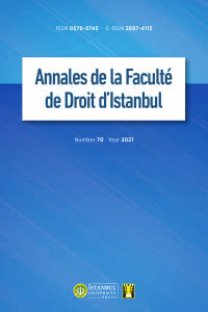Chiquita Şirketince Işlenen İnsanlığa Karşı Suçların Soruşturmasında İzlenebilecek Stratejiye İlişkin Yol Haritası
Bu politika metni, Kolombiya’da insanlığa karşı dolaylı olarak suç işlemiş olan Chiquita Brands International şirketi yöneticilerinin yargılanması ve sonunda cezaya mahkum edilmesine yönelik stratejik bir savunma içeren ve akademik camiayı, sivil toplum gruplarını ve Uluslararası Ceza Mahkemesi’ni de kapsayan bir yol haritası çizmektedir. Makalemizde sözkonusu şirket yöneticilerinin Kolombiya’da insanlığa karşı dolaylı da olsa suç işledikleri ve çatışmayı derinleştirdikleri tespiti yapılmış, ancak şirketin henüz uygulama safhasında olan ve müzakereleri devam eden geçiş dönemi yerel adalet mekanizmaları önünde gerçek anlamda sorumlu tutulmasının pek mümkün görülmediği vurgulanmış, bu cihetle bahsekonu soruşturmanın Uluslararası Ceza Mahkemesi Savcısı tarafından açılması gerektiği sonucuna varılmıştır. Burada temel önermemiz, insanlığa karşı işlenen suçların doğrudan faillerine ilaveten, bilerek bu suçların işlenmesini finanse eden ve gerekli şartları hazırlayan dolaylı faillerinin de sorumlu tutulması gerektiğidir.
Roadmap on Advocacy Strategy to Prosecute Chiquita’s Atrocity Crimes
This policy paper draws up a roadmap to conduct strategic advocacy aiming to engage partners from the academic and public interest field, as well as the International Criminal Court (ICC) to investigate, prosecute and eventually convict corporate executives of Chiquita Brands International who indirectly perpetrated crimes against humanity in Colombia and remain at large. We conclude that the Prosecutor of the ICC should open an investigation on the foreign corporate executives who indirectly perpetrated crimes and fueled the conflict in Colombia but cannot genuinely be tried by the domestic transitional justice currently under implementation and negotiation in Colombia. Our idea is to include corporate executives in the concept of most responsible perpetrators of atrocity crimes, thereby empowering victims to pursue justice not only against direct perpetrators but especially against those who knowingly sponsored and represented a necessary condition of the crimes.
Keywords:
International Criminal Court, Chiquita Brands International, Crimes Against Humanity, Colombia Transitional Justice, Roadmap,
___
- Aljazeera, Breaking down genocide in Myanmar, available at http://www. aljazeera.com/news/2015/10/breaking-genocide-myanmar-151025133708542.html
- Case No. 22813 (Supreme Court, Penal Chamber, March 30, 2006) (Colom.).
- CHIQUITA BRANDS INTERNATIONAL, INC. 2006 ANNUAL REPORT, available at http://investors.chiquita.com/phoenix.zhtml?c=119836&p=irol-reportsannual
- Colectivo de Abogados José Alvear Restrepo and Corporación Jurídica Libertad, Crímenes de Chiquita Brands siguen impunes en Colombia (Jun. 22, 2015), available at http://www. colectivodeabogados.org/?Crimenes-de-Chiquita-Brandssiguen-impunes-en-Colombia Doe v. Nestle, 766 F.3d 1017.
- George Washington Law School, The Chiquita Papers, available at http://nsarchive.gwu.edu/NSAEBB/NSAEBB340/
- EarthRights International, “ERI Launches New Lawsuit Against Chiquita for Funding, Arming, and Supporting Colombian Terrorists”, July 19, 2007, available at http://www. earthrights.org/legal/eri-launches-new-lawsuit-againstchiquita-funding-arming-and-supporting-colombianterrorists
- Eric Johnson, “Blood Diamonds” (Stanford University ed.), available at http://web.stanford.edu/class/e297a/Conflict%20in%20 Sierra%20Leone.htm
- INDEPAZ, Cartografía del Conflicto: Narcoparamilitares y Guerrilla, in PUNTO DE ENCUENTRO (March 2012) available at http://ediciones.indepaz.org.co/wp-content/uploads/2012/03/No.58-Punto-De-Encuentro.pdf.
- Invisible Children, The Warlord. Joseph Kony, available at http://invisiblechildren.com/conflict/kony/
- Laurie Cohen, Ex-Chiquita Director Faces Legal Jeopardy in Wall Street Journal (August 2, 2007) available at http://online.wsj. com/articles/SB118601669056785578.
- Nicholas S. Briggs, Conflict Diamonds in West Africa (Stanford University ed.), available atlhttp://web.stanford.edu/class/ e297a/Conflict%20diamonds%20in%20West%20Africa. htm
- Office of the Prosecutor of the International Criminal Court, Interim Report: Situation in Colombia, November 2012.
- Office of the Prosecutor, Statement of the Prosecutor on the Agreement on the Creation of a Special Jurisdiction for Peace in Colombia, September 24, 2015.
- Penal Code, L. 599 of 2000 July 24, 2000, D.O. 44097 (Colom.), arts. 340, 84.
- Permanent Peoples’ Tribunal, Sentencia (July, 21-23, 2008), available at http://www.colectivodeabogados.org/?DICTAMENFINAL-AUDIENCIA-TRIBUNAL
- Permanent Peoples’ Tribunal, THE EUROPEAN UNION AND TRANSNATIONAL CORPORATIONS IN LATIN AMERICA (2010), available at http://www.enlazandoalternativas.org/IMG/pdf/TPP-verdict.pdf
- Prosecutor v. Saifal-Islam Gaddafi & Abdullah al-Senussi, Case No. ICC01/11-01/11.
- Policy Paper on Preliminary Examinations, International Criminal Court-the Office of the Prosecutor, November 2013.
- ROME STATUTE OF THE INTERNATIONAL CRIMINAL COURT, 2187 U.N.T.S. 90, Article 15, entered into force July 1, 2002 [“Rome Statute”].
- Situation in the Republic of Kenya, Decision Pursuant to Article 15 of the Rome Statute on the Authorization of an Investigation into the Situation in the Republic of Kenya, ICC-01/09-19Corr, 31 March 2010.
- Stephen M. Walt, “International relations: one world, many theories.” Foreign policy (1998): 29-46.
- Terrorist Organization Profile: Self-Defense Groups of Cordoba and Uraba (ACCU), available at http://www.start.umd.edu/ tops/terrorist_organization_profile.asp?id=109.
- U.S. Department of Justice, Plea Agreement (March 13, 2007) available at http://nsarchive.gwu.edu/NSAEBB/NSAEBB340/20070313_sentencing_memo.pdf
- Verified Consolidated Shareholder Derivative Complaint (March 19, 2007), US District Court, Southern District of Florida No. 08-01916-MD-MARRA/JOHNSON available at http:// www.law.du.edu/documents/corporate-governance/international-corporate-governance/in-re-chiquita-verified.pdf
- ISSN: 0578-9745
- Yayın Aralığı: Yılda 2 Sayı
- Başlangıç: 1951
- Yayıncı: İstanbul Üniversitesi
Sayıdaki Diğer Makaleler
Yasir GÖKÇE, Juan P. CALDERON-MEZA
Gerçek Kişinin Kefaleti Bakımından Getirilen Süre Sınırlaması
Delillerin İbrazı ve İstinaf ile Temyizde Kontrolü
Türk Sermaye Piyasası Hukukunun Gelişimi ve Hukuk Düzenimiz İçerisindeki Yeri
Kefalet Sözleşmesinin Şekline İlişkin Türk Borçlar Kanunu’ndaki Yeni Düzenlemeler
Uluslararası Ticari Uyuşmazlıklar İçin Bir Seçenek Olarak Arabuluculuk
Paylı Mülkiyette Paydaşlar Arasında Yapılan Yönetim ve Yararlanma Anlaşmaları
Sanem AKSOY DURSUN, Arzu GENÇ ARIDEMİR
Konişmentolara Atıf Yolu ile Dahil Edilen Tahkim Klozlarının Neden Olduğu Üç Sorun
